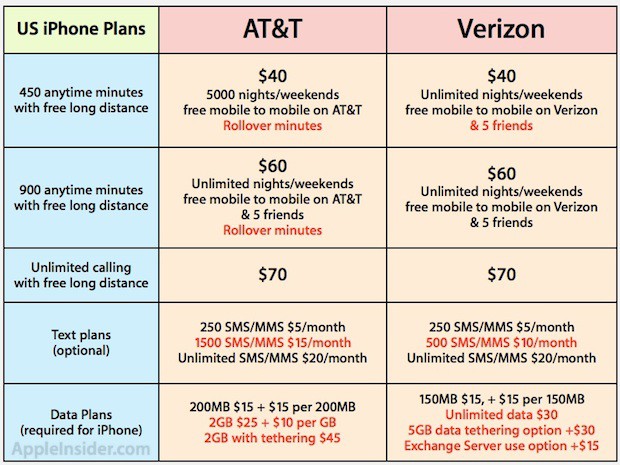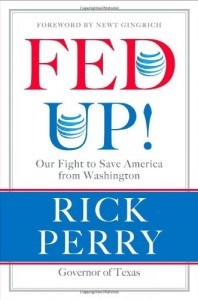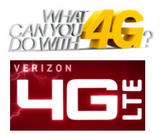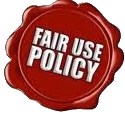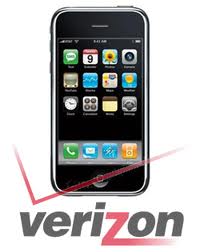 Disgruntled AT&T customers, and those with infinite patience for Apple’s iPhone on Verizon Wireless’ network — your long wait appears to finally be over.
Disgruntled AT&T customers, and those with infinite patience for Apple’s iPhone on Verizon Wireless’ network — your long wait appears to finally be over.
After nearly a year of speculation, Verizon Wireless is expected to announce the imminent arrival of the coveted smartphone on the nation’s largest wireless carrier at a press event tomorrow.
The Verizon version of the iPhone could come at a price premium, with some anticipating the entry level version of the phone could be priced as high as $249 — $50 higher than with AT&T. The usual two year contract applies.
Analysts predict a muted stampede, at least at first, by unhappy AT&T customers. As many as two million customers itching to dump AT&T could jump to Verizon in 2011, but they’ll pay dearly to do so. First, their existing AT&T iPhone won’t work on Verizon’s network, so that means a new phone and a new, two year contract with Verizon to get the best price. Second, AT&T locked many of its customers into two year contract extensions with the release of the last iPhone in June. No amount of whining by iPhone users, which has worked to score early upgrades and discounts in the past, will get AT&T to make the price of divorce less expensive. The company’s price to sever ties: more than $200 for most in-contract customers with the latest version of the popular phone.
[flv]http://www.phillipdampier.com/video/CNBC Verizon iPhone Package 1-10-11.flv[/flv]
CNBC discusses the pros and cons of Verizon’s adoption of Apple’s iPhone in these two reports. (8 minutes)
Verizon iPhone users will also give up something else: an iPhone that can multitask. AT&T’s GSM network allowed customers to browse web pages and run applications while you talked on the phone. Verizon’s CDMA network doesn’t support that. As long as you talk on your phone, your data applications won’t update. It’s an either/or proposition, at least for now.
Still, expect the iPhone to be a Verizon hit like none other. Carl Howe, an analyst for the Yankee Group, expects Verizon to sell 16.5 million iPhones in 2011, with more than half — 9 million — coming from Verizon’s own subscriber base.
The question is — can Verizon’s three bedroom house support the entire extended family showing up on their network doorstep?
AT&T’s network suffered from the onslaught of data-hungry iPhone devotees. As millions of Americans adopted the phone, an AT&T exclusive, the company’s wireless network groaned under the usage. With calls dropping, data trickling, and customer service irritating, AT&T scored rock-bottom in consumer ratings.
 Some wonder if the same fate could afflict Verizon’s network. Verizon currently has the lowest percentage of smartphone customers using its network among the four major carriers. Verizon’s pricing is typically considered the culprit. Customers insisting on the iPhone ended up with AT&T. But those seeking Android phones had more choices — Sprint’s unlimited data plans at aggressive price points, T-Mobile’s value-oriented family shareplans, or Verizon’s robust network coverage at Cadillac pricing.
Some wonder if the same fate could afflict Verizon’s network. Verizon currently has the lowest percentage of smartphone customers using its network among the four major carriers. Verizon’s pricing is typically considered the culprit. Customers insisting on the iPhone ended up with AT&T. But those seeking Android phones had more choices — Sprint’s unlimited data plans at aggressive price points, T-Mobile’s value-oriented family shareplans, or Verizon’s robust network coverage at Cadillac pricing.
Putting the iPhone, already a premium-priced phone some consumers can’t live without, with Verizon’s reputation for high quality service, is expected to be a winning combination, and 16.5 million customers joining Verizon’s existing 30 million smartphone customers in a single year could have a dramatic impact.
“Unless Verizon has done a lot of network upgrades in advance, it may see many of the same capacity problems that have plagued AT&T,” Howe says.
The news AT&T is about to lose its exclusivity for the phone was taken in stride by some company executives, one who used the occasion to take a swipe at Verizon’s slower speed 3G network.
AT&T public relations head Larry Solomon pointed out Verizon’s 3G network relies on 3.1Mbps EVDO Rev. A technology while AT&T delivers 7.2Mbps on its HSPA 3G network.
The iPhone is built for speed, but that’s not what you get with a CDMA phone,” Solomon told Electronista. “I’m not sure iPhone users are ready for life in the slow lane.”
Verizon Wireless is expected to unveil the new phone Tuesday morning, with its in-store availability expected within a few weeks. For fans of unlimited usage, there is one more piece of good news: Verizon is expected to continue offering unlimited data usage plans to its new iPhone customers. AT&T cashiered its own unlimited data plan last spring, forcing customers to keep usage under 2GB per month if they don’t want an even higher bill. Verizon is reportedly confident its network can sustain the traffic, and will leave its data hungry customers alone… for now.
[flv width=”640″ height=”500″]http://www.phillipdampier.com/video/WTTG Bloomberg Verizon iPhone Package 1-10-11.flv[/flv]
WTTG-TV in Washington delivers the news about the imminent arrival of the iPhone on Verizon’s network in a consumer-friendly fashion, while Bloomberg delves deeper into exactly what impact the move will have on existing and future customers of both AT&T and Verizon. (9 minutes)


 Subscribe
Subscribe